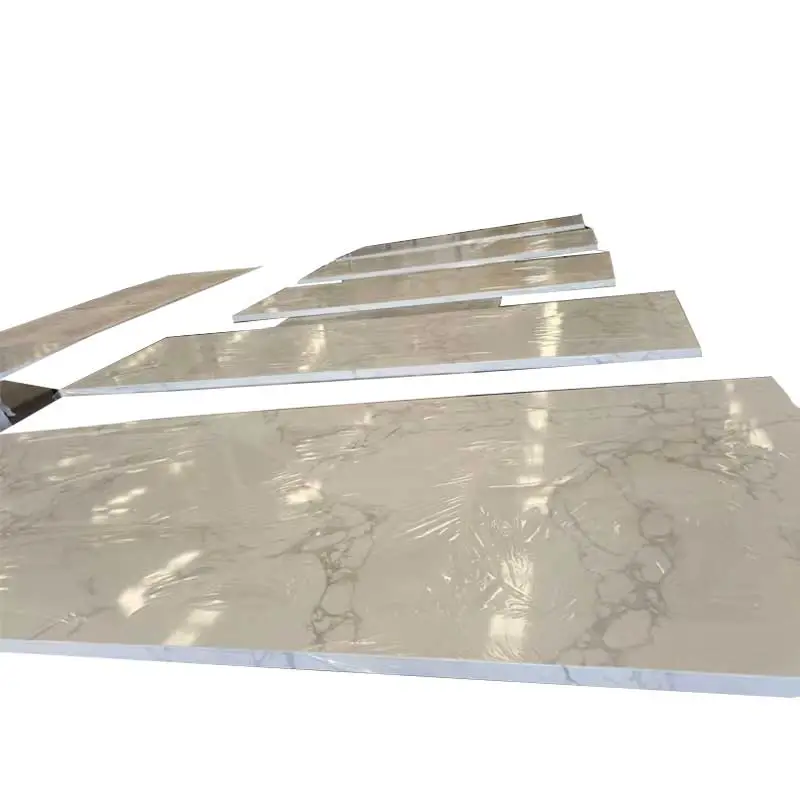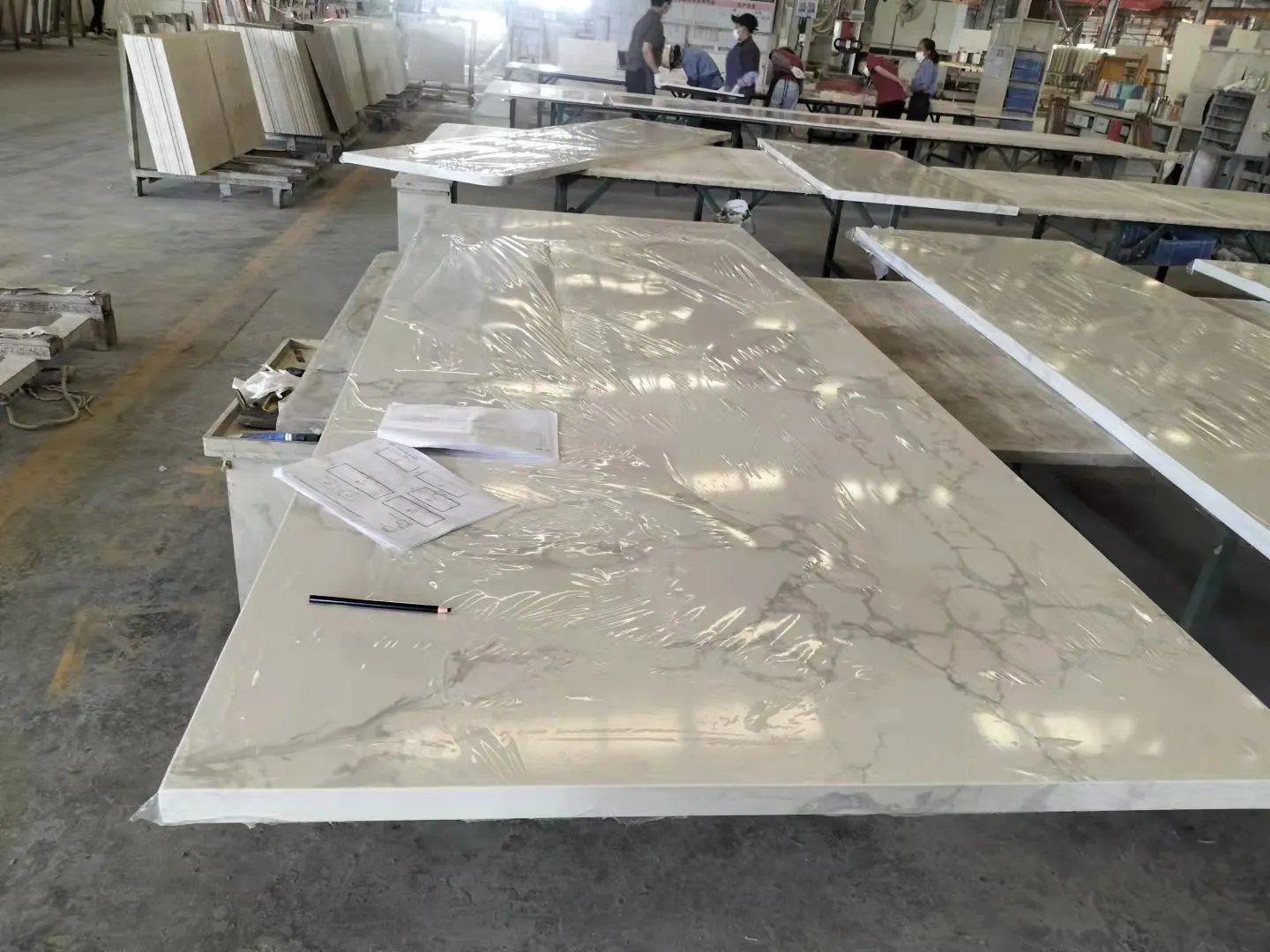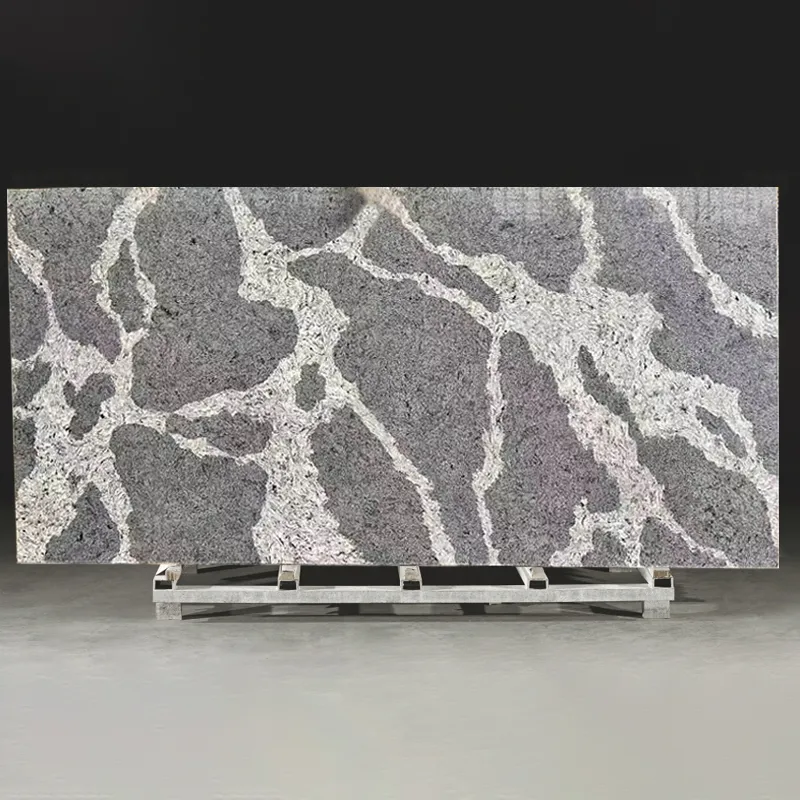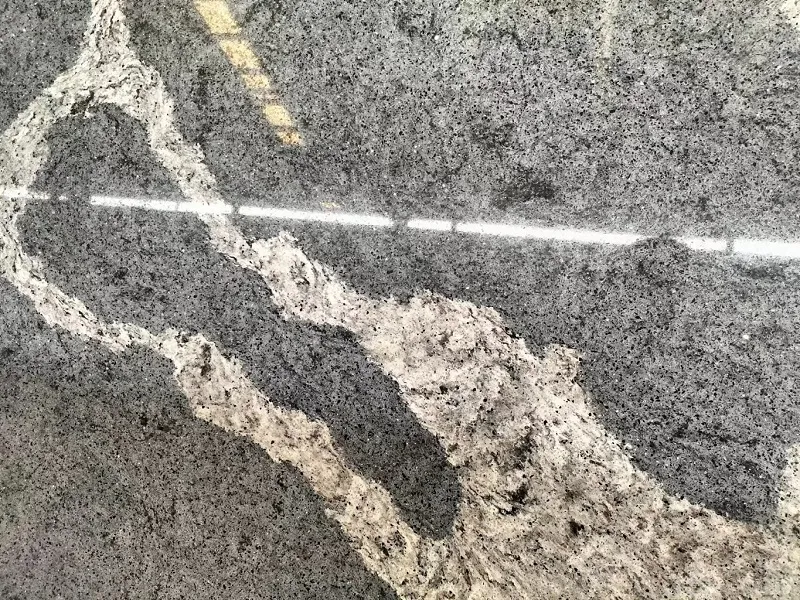When you decide to buy new countertops for your kitchen, two high-profile candidates often appear on your list: quartz and granite. Both are high-end countertop materials, each with its own advantages and disadvantages. So, which one is better for your kitchen?
This article will take a deep dive into all aspects of quartz and granite countertops, from material properties to hygiene, maintenance, appearance and price, to help you make an informed choice.

Quartz vs. Granite Countertops - Man-Made Stone vs. Natural Stone
First, we need to understand the nature of these two materials. Quartz is a man-made stone, while granite is a natural stone. This plays a decisive role in the composition and manufacturing process of the materials.
Quartz countertops are not composed entirely of natural quartz. They are a composite material that usually contains about 90% quartz particles, and the rest is composed of resins and pigments. This mixture makes quartz countertops very hard, durable, and consistent in color and texture. Because they are man-made products, quartz countertops can appear in a variety of colors and textures, giving them great design flexibility.
Granite is a natural stone that is mined from the interior of the earth. Each piece of granite is unique, with its color and texture randomly assigned by nature. Because of this, granite countertops carry a natural, unrepeatable beauty that is loved by many homeowners. However, due to its natural properties, the color, texture, and sheen of each piece of granite may vary.
Quartz Vs. Granite Countertop Hygiene Comparison
The kitchen is the heart of the home, and hygiene is particularly important. How do quartz and granite perform in this regard?
Due to the non-porous nature of quartz countertops, it absorbs little water and does not easily breed bacteria or mold. This makes quartz countertops very hygienic and suitable for use in the kitchen. Whether you are cutting raw meat or handling vegetables, quartz countertops can be easily cleaned without residual bacteria.
Although granite is a natural stone, there are tiny pores on its surface. These pores may absorb liquids, which can breed bacteria. If sealed, granite will not breed bacteria. Cleaning it is simple and does not require a lot of effort. Granite's smooth surface has no pores, which means it is antibacterial. The simplicity and ease of cleaning granite countertops keeps your kitchen looking new, free of bacteria, mold, and odors. If not sealed regularly, granite countertops can become a breeding ground for bacteria. Therefore, the hygienic properties of granite depend on how well it is maintained and sealed.
Quartz Vs. Granite Countertop Maintenance Comparison
Each countertop requires a different level of maintenance, especially after long-term use.
Quartz countertops are popular for their durability and low maintenance needs. Routine maintenance of quartz countertops includes daily use of soap or mild household detergent and warm water to keep them looking new. Quartz countertops also do not require sealing them because they have a solid surface. In addition, quartz countertops are very resistant to stains and scratches, and they perform well even in a busy kitchen.
In contrast, granite countertops require more maintenance. Despite its high hardness, granite needs to be sealed regularly (usually once a year) to prevent stains and liquid penetration due to the porosity of its surface. In addition, granite countertops require special care when cleaning. Never use abrasive cleaners, acids, and oils, as they will stain granite. Every year, be sure to reseal your granite countertops, as this will protect them from absorption of wine, lemon juice, and tomato spills. Sealing granite is the best solution to prevent stains.

Quartz Vs. Granite Countertop Appearance Comparison
Aesthetics are a key factor in kitchen countertop selection. Quartz and granite each have their own advantages in appearance. The biggest advantage of quartz countertops is the variety of colors and textures. Because it is a man-made stone, quartz countertops can appear in a variety of colors, from classic white and gray to bright red and blue. In addition, the texture of quartz can also be customized according to design needs, allowing it to either mimic the appearance of natural stone or create a unique design with a modern feel.
The beauty of granite countertops comes from its naturalness. Each piece of granite is unique, and its naturally formed textures and colors give the kitchen a unique personality. Granite generally has a more natural and organic appearance, which is undoubtedly a huge attraction for those who love natural materials. If you want to complement the traditional style of your kitchen, look for brown, green, and burgundy granite color options. If you prefer a modern, minimalist kitchen, but you still insist on a unique-looking slab, consider white granite types.
Quartz Vs. Granite Countertop Price Comparison
Price is the top factor many consumers consider. Quartz and granite vary in price, depending on factors such as quality, thickness, color, and installation. According to HomeAdvisor, the average cost to purchase and install quartz countertops ranges from $70 to $100 per square foot. While some high-end brands of quartz are close to or even higher than granite, overall, quartz is relatively stable and more predictable.
Granite prices also vary widely, with the average cost of installing granite ranging from $2,000 to $4,000, according to HomeAdvisor. Some other sources say that granite prices for luxury slabs range from $80 to $175 per square foot, or even higher. Because granite is a natural stone, its price is more affected by its origin, color, and the rarity of its texture. Certain rare colors and textures of granite may be more expensive than most quartz countertops.
Granite vs. Quartz: Which is Better?
This is a question with no standard answer, as the final choice depends on personal needs and preferences. If you are more concerned about the ease of maintenance of the countertop, the choice of colors and textures, and the stain and antibacterial properties, quartz countertops may be more suitable for you. It is a very popular choice in modern kitchen design. If you pursue the unique beauty of natural materials, are willing to invest time and effort in maintenance, and have a special liking for the natural texture of the countertop, then granite countertops may be more in line with your needs. It is suitable for families who like traditional style and pay attention to personalized design.
Is Quartz More Expensive Than Granite?
In some cases, quartz countertops do cost more than granite, especially when choosing high-end brands or special colors. However, the price of granite fluctuates greatly, and rare granite species may be more expensive than most quartz countertops. Therefore, which material is more expensive depends on the specific product you choose and the market situation. For example, white granite in brown and earth tones is more expensive than granite, simply because traditional granite options are not as fashionable as they used to be, while white granite options are.
Granite vs. Quartz: Which is Easier to Care for and Maintain?
Quartz countertops are superior in terms of care and maintenance. Due to their non-porous nature, quartz countertops do not need to be sealed regularly and are not prone to staining or bacteria. In contrast, granite countertops need to be sealed at least once a year and require more care when cleaning, avoiding the use of cleaners that may damage their surface. You will need professional help to do this properly. Only if you are an experienced DIYer, you will not need professional help.

Is Quartz Easier to Scratch Than Granite?
Both quartz and granite are very scratch-resistant, but they behave slightly differently. Quartz is generally more scratch-resistant due to its man-made nature. Granite, on the other hand, is very hard, but it can still scratch in certain situations (such as with sharp knives). Therefore, it is recommended to use a cutting board when cutting to protect the countertop from damage.
Is Granite Shinier Than Quartz?
The glossiness of granite and quartz countertops depends on the surface treatment used. Typically, polished granite countertops have a higher natural sheen that comes from the minerals within the stone. Quartz countertops can also be polished, but their sheen is usually softer and more modern. If you prefer a high-gloss countertop, granite may be more suitable for your needs.
Does granite stain more than quartz?
Granite is a natural stone that does stain more easily than quartz due to its porous nature. Unsealed or improperly sealed granite countertops tend to absorb liquids such as red wine, coffee, etc., leaving permanent stains. Quartz countertops are extremely difficult to stain due to their non-porous nature and absorb almost no liquids. The trick lies in the special resins included in the quartz material. These mortars make the stone less porous and therefore very resistant to staining.

Summary
Whether it is quartz or granite, both are excellent countertop materials, each with its own unique advantages. Quartz has won the favor of modern kitchens with its low maintenance, high durability and wide range of design options. Granite, on the other hand, attracts those who love natural materials with its natural beauty, unique texture and time-honored tradition.
When making your final decision, considering your needs for the countertop, your personal style preferences, and your budget will help you find the best fit.

